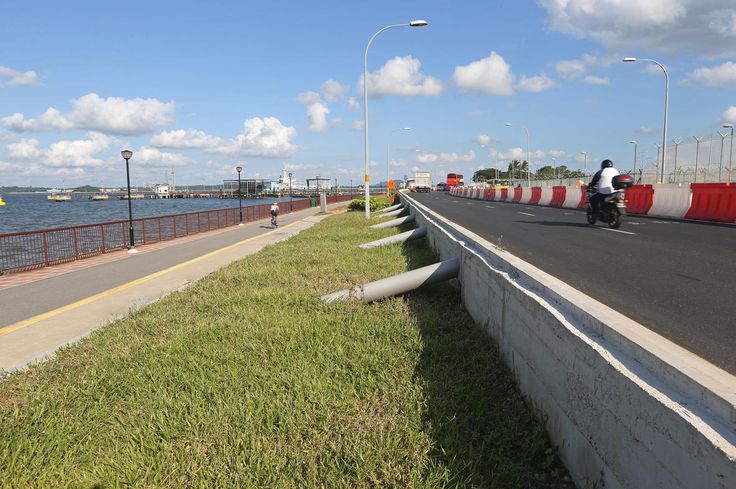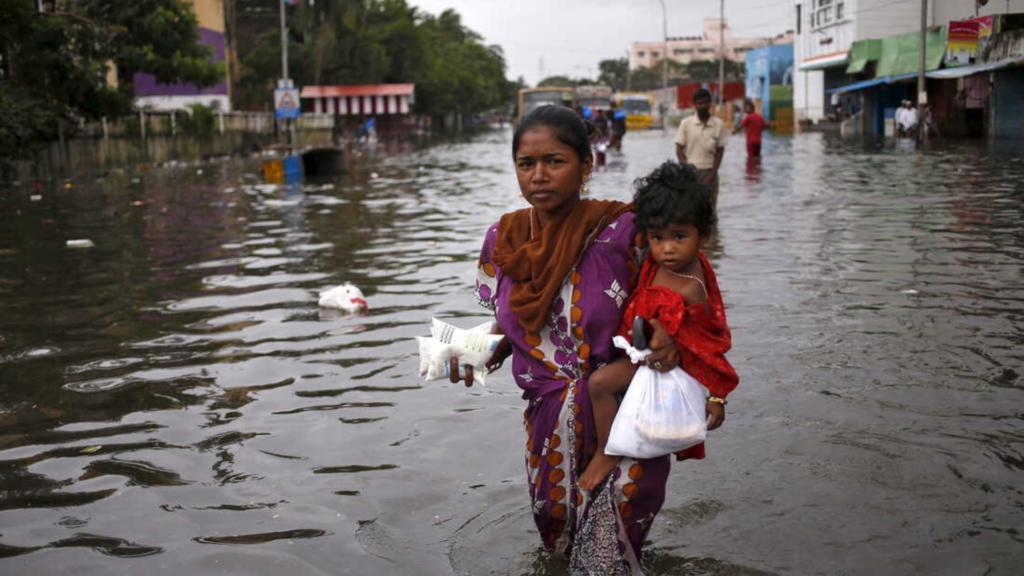Mortgages, Subways & Automobiles
Agarwal, S., Chua, Y. H., Ghosh, P., Ghosh, S. K., & She, L. (2025). Mortgages, subways and automobiles. Journal of Public Economics, 252, Article 105522. https://doi.org/10.1016/j.jpubeco.2025.105522
We examine how sustainable infrastructure investments affect household financial outcomes by studying the impact of subway expansions on mortgage repayment behavior in Delhi, India. Using administrative data from one of India’s largest mortgage lenders, we find that households in postal codes with newly opened stations experience a 4.42% decline in mortgage delinquency rate and a 1.38% increase in prepayment rate. Evidence from vehicle registration records suggests that these improvements are driven by reduced automobile reliance, with vehicle spending falling by 6.52%. The effects are most pronounced among financially constrained households, who cut back on low-quality vehicle purchases and exhibit the greatest gains in repayment performance.
Tax Policy & Household Expenditures
Agarwal, S., Ghosh, P., & Zhang, J. (2025). Tax policy transmission and household expenditures. The Review of Economics and Statistics 2025. https://doi.org/10.1162/rest_a_01584
Using a novel scanner data and difference-in-differences strategy, we assess how consumers respond to a large-scale tax reform in India that introduces exogenous variations in tax rate changes at the product level. We show evidence of a strong and persistent spending response to tax rate changes. The response is highly asymmetrical, with consumers responding significantly more strongly to tax rate increases than to decreases. We find empirical support for both intertemporal and cross-product substitution effects: Households (1) shift consumption forward preceding a tax increase and (2) substitute one good for another and alter their relative weight in the consumption basket to avoid paying higher tax. Heterogeneity analysis indicates that consumers with more personal shopping experience exhibit stronger consumption responses. Our findings have empirical implications for the efficacy of tax policy initiatives.
Atlantic Hurricanes & Business Activity
Agarwal, S., Choudhury, S. P., Fan, M., & Klapper, L. (2025). The impact of Atlantic hurricanes on business activity (Policy Research Working Paper Series 11217). The World Bank. https://openknowledge.worldbank.org/server/api/core/bitstreams/4a51f770-b6bc-4426-a0a1-1b4d814b551c/content
This paper quantifies the short-run economic impact of 21 Atlantic hurricanes on U.S. local business activity from 2017 to 2024 using anonymized Mastercard transaction data aggregated by ZIP code. On average, hurricanes
reduce merchant sales by 12.4 percent during the preparation, impact, and recovery phases—an estimated US$1.38
billion in lost revenue per storm. Substitution in spending across nearby areas or large online platforms is limited, indi-
cating widespread local consumption declines. Economic disruption varies more by industry than storm intensity,
with independent stores hit harder than chains. Local businesses with larger online presence face smaller, shorter sales declines, showing greater resilience.
Stock Market Fluctuations & Health
Agarwal, S., Chen, S., He, H., Huang, X., & Li, T. (2024). Associations between stock market fluctuations and stress-related emergency room visits in China, Natural Mental Health 2, 909-915.https://doi.org/10.1038/s44220-024-00267-5
Here we study the relationship between stock market fluctuations and emergency room visits in China. Using daily emergency room visit records from the three largest hospitals in Beijing from 1 January 2009 to 31 December 2012, we find that a one percentage point decrease in daily market returns (Growth Enterprises Index) is associated with 0.185 (P = 0.040, confidence interval (CI) = 0.009 to 0.361, or 0.7%) increased cases of cardiovascular diseases and 0.020 (P = 0.060, CI = 0 to −0.041, or 2.5%) increased cases of mental disorders on that day. Moreover, a one percentage point increase in daily market returns (Growth Enterprises Index) is associated with 0.035 (P = 0.007, CI = 0.010 to 0.059, or 3.3%) increase in cases of alcohol abuse on that day. The health effects are highly nonlinear, instantaneous and more salient for older people and males. By contrast, diseases that are less related to psychological stress (for example, infections and parasitic diseases) are not significantly affected by market fluctuations. A back-of-the-envelope calculation suggests that a ten percentage point decrease in daily market returns is associated with an approximately RMB 35 million increase in national medical expenses related to emergency room services.
ETS Heterogeneity & Decarbonization Outcomes
Adbi, A., Agarwal, S., & Natarajan, S. (2025). Global heterogeneity in ETS rollouts and subsequent decarbonization outcomes. Energy Economics, 132, 108921. https://doi.org/10.1016/j.eneco.2025.108921
This study explores how emissions trading schemes (ETSs) worldwide influence decarbonization. It finds that while ETSs can reduce carbon intensity, emissions, and boost renewable energy adoption, their effectiveness varies across countries. Key factors include reliance on natural resource rents, economic development level, and whether ETSs are nationwide or partial. The research shows that higher ETS carbon prices strengthen emissions reductions, underscoring both the potential and limits of ETSs in driving global climate action.
Urban Development & Climate Risk
Agarwal S., Fan, M., & Qin, Y. (2025). Avoid urban development policy that fuels climate risk, Nature Climate Change. https://doi.org/10.1038/s41558-025-02365-3
Urban development policies, designed to improve city resilience, could unintentionally increase the exposure to climate risk. This Comment discusses the impact of misaligned incentives, miscalculated benefits and costs, and overlooked behavioural responses on policy outcomes, as well as future directions.
AI & Corporate Sustainability
Ong, K., Mao, R., Satapathy, R., Filho, R. S., Cambria, E., Sulaeman, J., & Mengaldo, G. (2025). Explainable natural language processing for corporate sustainability analysis, Information Fusion, 115(102726). https://doi.org/10.1016/j.inffus.2024.102726
This paper examines how the inherent complexity of sustainability leads to subjectivity in corporate sustainability assessments. It highlights that sustainability disclosures are often incomplete, ambiguous, unreliable, and highly sophisticated, making consistent evaluation challenging. Moreover, interpreting such disclosures is a resource-intensive process prone to human bias. The authors propose that Natural Language Processing (NLP) can automate parts of the sustainability analysis, improving efficiency and reducing some aspects of subjectivity. By further integrating linguistic analysis techniques with Explainable Artificial Intelligence (XAI) capabilities, the study suggests a pathway to enhance transparency, interpretability, and reliability in sustainability assessments.
Noise Pollution & Youth Development
Adbi, A., Agarwal, S., & Ghosh, P. (2025). Urban noise pollution and learning in developing economies, Nature Cities 2, 6-7. https://doi.org/10.1038/s44284-024-00189-4
Many cities in the developing world are witnessing high noise pollution due to infrastructure development and growing traffic. Urban planning interventions may be necessary to mitigate potential adverse effect of noise pollution on the learning outcomes of young residents in developing economies.
Occupational Ethics & Values
Santana, J. J., & Kim, S. (2025). From values to codes: A computational text analysis of the codification of occupational ethics. Organization Studies, 0(0). https://doi.org/10.1177/01708406251317255
The institutionalization of occupations tends to assume homogenization of occupational values. This study addresses the question of how members of an occupation with dissenting preferences reach consensus on a code of ethics. We build on prior theorization of occupational institutionalization and institutional discourse to theorize ethical codification as a dynamic discursive process of internal dissent and consensus culminating in a professional code of ethics. We use email data from the IEEE-ACM Software Engineering Ethics and Professional Practice Committee tasked with producing the 1997 Software Engineering Code of Ethics to show how ethical codification follows a process of initial competition followed by semantic convergence. This study demonstrates how natural language processing and semantic network analysis can contribute to discourse analyses of institutional processes.
Sea Level Rise & Housing Prices
Agarwal, S., Qin, Y., Sing, T. F., & Zhan, C. (2025) Sea level rise risks, adaptation strategies, and real estate prices in Singapore. Journal of Public Economics, 241 (105290), https://doi.org/10.1016/j.jpubeco.2024.105290
This study exploits the Singapore Prime Minister’s announcement of the areas affected by sea level rise (SLR) within the country and its adaptation strategies valued at 100 billion Singapore dollars. Utilizing transaction-level data with exact locations, we find that public housing prices dropped by 7.2% in SLR areas four years after the announcement relative to non-SLR areas. In SLR areas with adaptation, the price depreciation was mitigated to 0.6%. In the private housing sector, freehold properties benefit more from adaptation strategies than leasehold properties. We calibrate the long-term discount rates before and after the shock at 2.27% and 2.14% in SLR areas and 2.35% and 2.12% in SLR areas with adaptation, respectively. (JEL H43, R21, R28, R38, R51, Q54)
Household Income & Consumption after Flood
Agarwal, S., Ghosh, P., & Zheng, H.(2024). Consumption response to a natural disaster: Evidence of price and income shocks from Chennai flood, Energy Economics, 131 (107323), https://doi.org/10.1016/j.eneco.2024.107323
In this paper, we utilize monthly individual-level financial data and item-level supermarket sales data to study how consumption responds to one of the costliest natural disasters in India. We find that consumption dropped by 11% during the disaster, 65% of which was recovered after the disaster. On average, consumption per capita dropped by $312 per year, which costs about 5% of the GDP. We also show that natural disasters depressed consumption through income shocks instead of price shocks. Consumers smooth consumption using credit card, banks loans and wealth in coping with the shocks.
Environmental Performance & Housing Prices
Agarwal, S., Ding, Y.H., Kuang, W.D., & Zhu, X. (2023). Are environmental punishments good news or bad news? Evidence from China. Journal of Environmental Economics and Management, 120 (102847), https://doi.org/10.1016/j.jeem.2023.102847
This study investigates how the disclosure of environmental punishments influences housing prices in the context of rising public awareness of environmental issues. Examining data on firm-level environmental punishments and housing resale transactions in Beijing from January 2015 to December 2017, we observed a significant average price drop of 1.84% for houses located within 0.5 km of environmentally punished firms. The impact intensified with multiple environmental punishments and was more pronounced during heating seasons and national events. We identify three mechanisms explaining the effects of environmental punishments on housing prices: “information disclosure,” where the impact magnifies with public release and environmental information searching; “information dissemination,” revealing that negative effects decrease with distance and over time; and “health concern,” indicating stronger responses from older homebuyers and those with children compared to unmarried young homebuyers.












